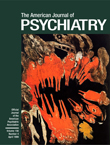Tranquilizing Effects of Smoking Cessation
To the Editor: The simple, elegant study by Robert West, Ph.D., and Peter Hajek, Ph.D. (1), serves to question the widely accepted notion that cessation of smoking leads to anxiety; hence, the myth that smoking has a calming effect.
The authors postulate that previous reports of anxiety following smoking cessation are related to the fact that many quitters may not have abstained completely. The authors note that nicotine substitution is used in many smoking cessation programs, but they do not comment on the fact that continuing to introduce this anxiogenic agent into the body by means other than smoking may simply perpetuate the sympathomimetic properties of nicotine. Incidentally, it would have been interesting to have noted the pulse rates of the smokers in this study. Because the notion that smoking cessation leads to anxiety predates the use of nicotine substitutes, perhaps we are dealing with the effects of decades of advertising that emphasizes the soothing, calming, beneficial effects of smoking.
Although the authors stated that “sessions focused on group discussion of abstinence and had no relaxation or stress management components” (p. 1592), they somehow must have conveyed a supportive, positive approach to have 70 of 101 patients abstinent at 4 weeks.
The consensual validation of the anxiolytic effects of smoking cessation should be helpful to physicians who deal with tobacco addiction.
1. West R, Hajek P: What happens to anxiety levels on giving up smoking? Am J Psychiatry 1997; 154:1589–1592Google Scholar



